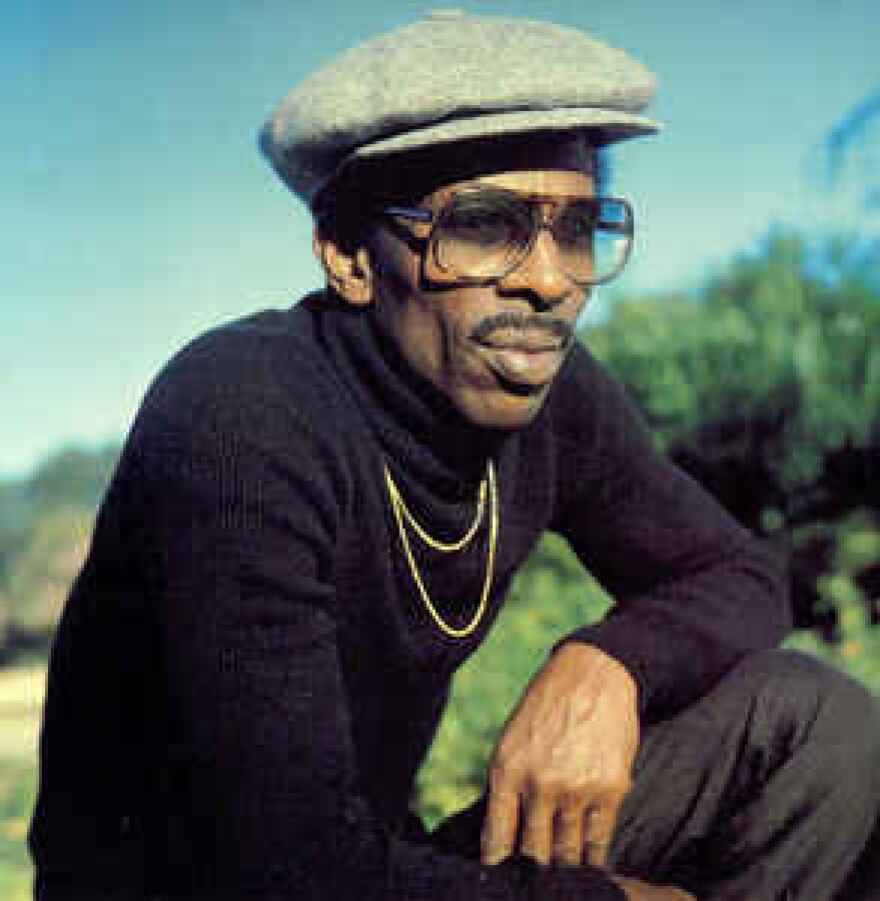Sunday Night Jazz Showcase
Program #261 (July 28 at 8:00 p.m.)
Johnny Adams was one of those singers whose critical reputation and standing with other musicians always outstripped his popularity with a mass audience. If he never achieved the kind of commercial success which came the way of some of the Chicago blues giants, however, his achievements will certainly outlast him.
Lathan John Adams was born into a large family -- he was the oldest of 10 children -- in New Orleans, and reflected many aspects of the rich musical mix of that city throughout his career. His music drew on blues, rhythm and blues, soul and jazz, and he was capable of polished and expressive performances in any of those styles.
He left school at 15, and became a professional musician shortly afterwards, singing with gospel groups like The Soul Revivers and Bessie Griffin and the Consolators in the first instance, before turning to secular music and the genre in which he made his primary reputation, rhythm and blues.
He scored a substantial hit in 1959 with the single "I Won't Cry", and followed it with another, "A Losing Battle", in 1962 (the record was written and produced by Mac Rebennack, better known as Dr John). In later years, Adams argued that these hits could have been a springboard to national success if the independent label which owned them had been prepared to negotiate with a major label, but that never happened.
The singer went on to rack up a string of regional best-sellers throughout the Sixties and Seventies, however, including the country-flavoured "Release Me" in 1968, and both "Reconsider Me" and "I Can't Be All Bad" the following year. His velvety vocal style and soulful falsetto interjections won him a following on the black nightclub circuit in his native south, but he had a long overdue opportunity to extend that audience when he linked up with producer Scott Billington at Rounder Records in the early Eighties.
In paying tribute to Adams, Billington described him as being "first and foremost a jazz singer with one of the best pairs of ears in the business." The producer allowed him the freedom to exercise his own artistic prerogatives in a relationship which spanned nine albums, beginning with From the Heart in 1984. The record marked a turning point in Adams's career, and the partnership allowed him to reveal a variety of facets of his talents in the ensuing decades.
The subsequent recordings included songwriter-themed tributes to the music of Percy Mayfield and Doc Pomus, while the jazz-influenced Good Morning Heartache saw him take on the work of composers like George Gershwin and Harold Arlen. The emblematic title One Foot In the Blues perhaps summed up his philosophy as well as any -- the blues were always present in his work, but that second foot could be planted in any of several different styles.
These recordings provided a substantial legacy of his music, and brought him a number of awards, and many more nominations. He began touring on an international basis, including frequent trips to Europe, and worked and recorded with prominent names, including fellow New Orleans celebrities like Aaron Neville, Harry Connick, Jr, and Dr. John, as well as instrumentalists like saxophonists Alvin 'Red' Tyler and Houston Person.
Adams was diagnosed as suffering from cancer in 1997, and a fund was set up in New Orleans to help with his medical bills.
(provided by Jazz House)


